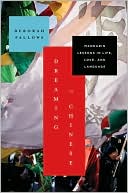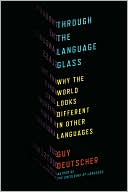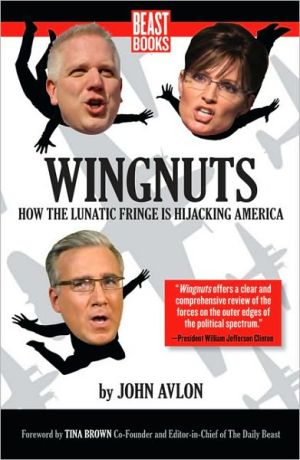Globish: How the English Language Became the World's Language
Praise for Globish:\ “Robert McCrum argues, brilliantly and provocatively, that England’s greatest contribution to the world is English. The empire may be gone. But Globish explains why the language still rules.”—Malcolm Gladwell\ Praise for P. G. Wodehouse: A Life:\ “For as long as P.G. Wodehouse is read, this will be the seminal work of reference, the indispensable vade mecum. In other words—as the Master might say—‘ripping.’ ”—John le Carré\ “McCrum . . . has written a biography that, if...
Search in google:
How English conquered the world: a Guns, Germs, and Steel argument based on the power of the word. The New York Times - Dwight Garner …smart but casual, more gastropub than white-linen dining; the author seems to have written it with his left hand. It revisits material from The Story of English (1986), which Mr. McCrum wrote with William Cran and Robert MacNeil. Some of this new book is likely to seem dated before too long, but part of the point of Globish is that English mutates and spreads as quickly as those zombies in the movie "28 Days Later" sprint down a freeway.
Prologue: áCrazy English' 3PART ONE FOUNDERS1 In the Beginning: Four Invasions and a Cultural Revolution 232 Defeat into Victory: The DNA of Self-Expression 413 áLighte Englisshe': Medieval Mass Communications 614 Eating Paper, Drinking Ink: Shakespeare & Co. 74PART TWO PIONEERS5 áA Whole Country of English': Re-inventing Freedom and Originality 936 áCommon Hopes and Common Dreams': Lighting Out for the Territory 1117 áThe Audacity of Hope': From Slavery to Redemption 125PART THREE POPULARISERS8 Rule, Britannial: How England Became Britrish 1479 East, in a Western Voice: The People's Empire 17110 áAt the Top of the World': The Imperial Swan Song 188PART FOUR MODERNISERS11 áA Willingness of the Heart': The American Century I 20112 áThe Unity of the English-Speaking Peoples': The American Century II 21113 áThe World At Your Fingertips': From Google to Globish, 1989-2009 226PART FIVE GLOBALISERS14 One World, One Dream: áConquer English to Make China Strong' 24915 áVirtually Running America': India, the Far East and Beyond 260Epilogue: áA Thoroughfare for All Thoughts' 275Notes 289Select Bibliography 309Acknowledgements 313Index 315
\ Publishers WeeklyBritannia may not rule, but it still presides over the world's discourse, according to this sketchy, triumphalist chronicle of the English language. McCrum (The Story of English), associate editor of Britain's Observer, surveys the latter-day apotheosis of English as the international language, observing Chinese English-language boot camps, Bangalore call centers, and the takeover of Britain's Man Booker prize by non-British novelists. But most of the book is a historical pageant of the English-speaking peoples as they assimilated, conquered, or enslaved foreigners and expropriated words and dialects under the leadership of statesmen/wordsmiths from King Alfred to Churchill and literary geniuses like Shakespeare and Twain. McCrum makes a pragmatic, happenstance case for the international popularity of English: the British Empire and American hegemony spread it around the planet, making it the obvious choice for a globalizing world's lingua franca. But he also advances a grander and less coherent brief for English as the language of individual freedom, democracy, and capitalism, contrasting its “contagious, adaptable, populist and subversive” spirit with the snobby elitism of French. That's a bit of language chauvinism that no linguistic analysis, especially one as cursory as McCrum's, can sustain. (May)\ \ \ \ \ Library JournalWhen McCrum contributed to the book and television series Story of English in the 1980s, most scholars felt the language was degenerating into numerous dialects. Why was that view inaccurate? McCrum identifies factors that made the British pen triumphant in a vast linguistic empire—e.g., a multicultural and multilanguage legacy from early invasions, language seeds sown through an eventual empire, being among victors of 20th-century world war, and a heritage of valuing literacy. These values spurred economies and global media such as CNN and the BBC, even before the Internet, all through which English currently offers a unified communications platform. McCrum supports his narrative with quotations and biographical sketches that powerfully connect older English to today, such as biblical language echoed by Barack Obama. VERDICT Readers unfamiliar with British history may find some sections difficult, but the absence of linguistic jargon combines with supporting documentation to create an overall effective work. Distinguished by its historical focus and accessibility to a general audience, this book successfully appeals to language lovers and history buffs alike.—Marianne Orme, Des Plaines P.L., IL\ \ \ Jonathan YardleyThe history of English is inherently fascinating, and McCrum tells the story well.\ —The Washington Post\ \ \ \ \ Dwight Garner…smart but casual, more gastropub than white-linen dining; the author seems to have written it with his left hand. It revisits material from The Story of English (1986), which Mr. McCrum wrote with William Cran and Robert MacNeil. Some of this new book is likely to seem dated before too long, but part of the point of Globish is that English mutates and spreads as quickly as those zombies in the movie "28 Days Later" sprint down a freeway.\ —The New York Times\ \ \ \ \ Kirkus ReviewsThe Observer associate editor McCrum (My Year Off: Rediscovering Life After a Stroke, 2008, etc.) rehearses the history of the English language, from Britannia to Bollywood, focusing on how it has transformed from one island's language to "Globish," a version of the language used by billions worldwide. The author, who co-wrote the book and subsequent TV series The Story of English (both in 1986), begins with a definition of Globish, then moves through English, American and world history at a breathtaking pace, pausing only occasionally to elaborate on publications and people he identifies as key to the eventual hegemony of English. Among the former are the King James Bible and the Book of Common Prayer, both of which influenced centuries of speakers and writers. The author looks at Gutenberg and Caxton, Henry VIII and Anne Boleyn, and of course Shakespeare, "a master of artistic synthesis." McCrum then focuses on the New World, providing accolades for Thomas Paine, Noah Webster, Abraham Lincoln-whose Gettysburg Address the author greatly admires-and Mark Twain, whom the author characterizes as a "founding father of the world's English" because of his recognition of the power of common speech. The author also examines English and the slave trade, noting that captains on the Middle Passage separated slaves who spoke the same language, making English a pressing necessity for them to learn. McCrum covers Dr. Johnson, Dickens, the rise of the British Empire and the spread of English into India, Australia, Africa and elsewhere, spending more time on Winston Churchill and his rhetoric than on any other individual. After the Cold War, it's Americanization, the Internet, EuroDisney, ThomasFriedman's flat world and the astonishing datum that there are 175,000 new blogs per day. McCrum ends with extensive looks at modern China and India, where billions are learning English/Globish as a way to improve their economic potential. Still, he cautions, the world has 5,000 individual languages. Heavy on historical summary yet gripping and profoundly informative.\ \ \ \ \ From the Publisher"An overall effective work.... This book successfully appeals to language lovers and history buffs alike." —-Library Journal\ \








